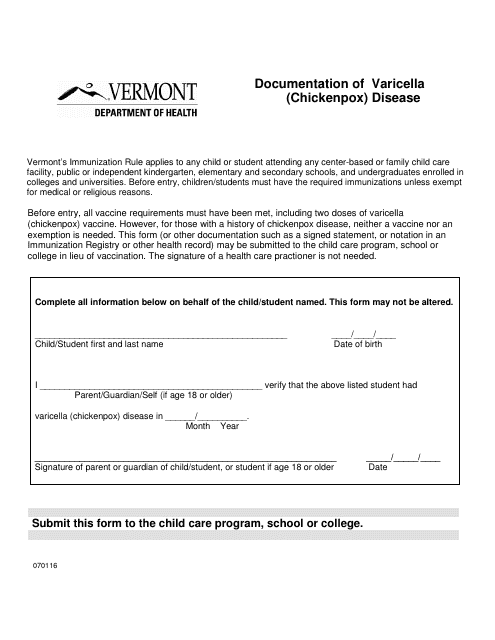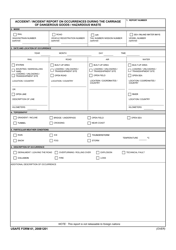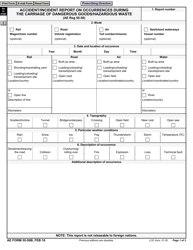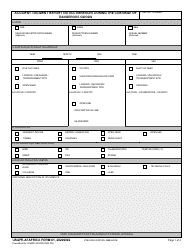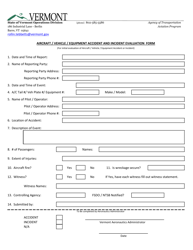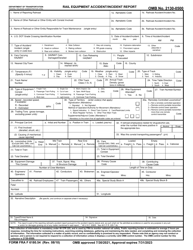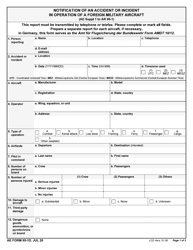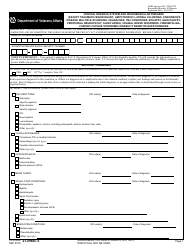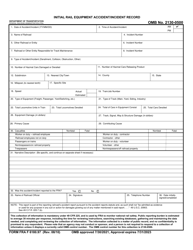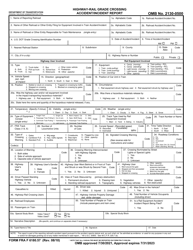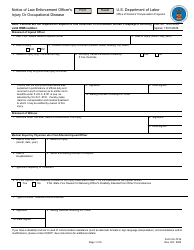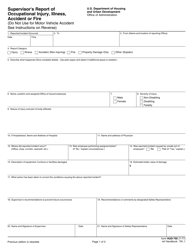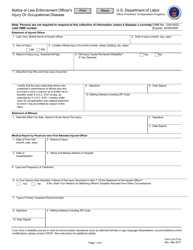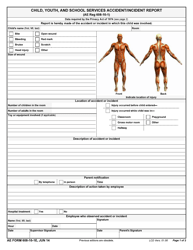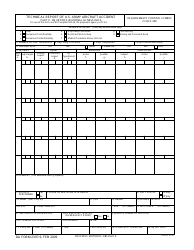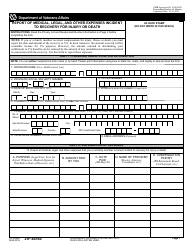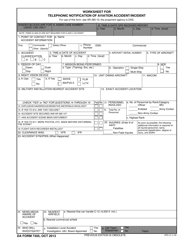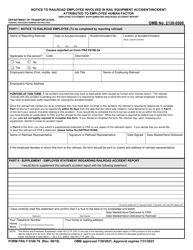Documentation of Varicella (Chickenpox) Disease - Vermont
Documentation of Varicella (Chickenpox) Disease is a legal document that was released by the Vermont Department of Health - a government authority operating within Vermont.
FAQ
Q: What is Varicella?
A: Varicella, commonly known as chickenpox, is a highly contagious viral disease.
Q: How is Varicella transmitted?
A: Varicella is spread through direct contact with fluid from the blisters or by respiratory droplets.
Q: What are the symptoms of Varicella?
A: Symptoms of Varicella include itchy rash, fever, headache, and fatigue.
Q: Who is at risk of contracting Varicella?
A: Anyone who has not had chickenpox or received the vaccine is at risk.
Q: How can Varicella be prevented?
A: Varicella can be prevented by getting vaccinated with the chickenpox vaccine.
Q: What is the recommended chickenpox vaccination schedule?
A: Children should receive two doses of the chickenpox vaccine, the first at 12-15 months and the second at 4-6 years.
Q: Are there any complications associated with Varicella?
A: Yes, complications can include bacterial infections, pneumonia, and encephalitis.
Q: What should I do if I think I have Varicella?
A: If you suspect you have chickenpox, consult with a healthcare professional for diagnosis and treatment options.
Q: Is Varicella a reportable disease in Vermont?
A: Yes, healthcare providers are required to report cases of Varicella to the Vermont Department of Health.
Q: Can someone who has already had Varicella get it again?
A: It is rare, but possible for someone to get chickenpox more than once.
Form Details:
- Released on July 1, 2016;
- The latest edition currently provided by the Vermont Department of Health;
- Ready to use and print;
- Easy to customize;
- Compatible with most PDF-viewing applications;
- Fill out the form in our online filing application.
Download a fillable version of the form by clicking the link below or browse more documents and templates provided by the Vermont Department of Health.
